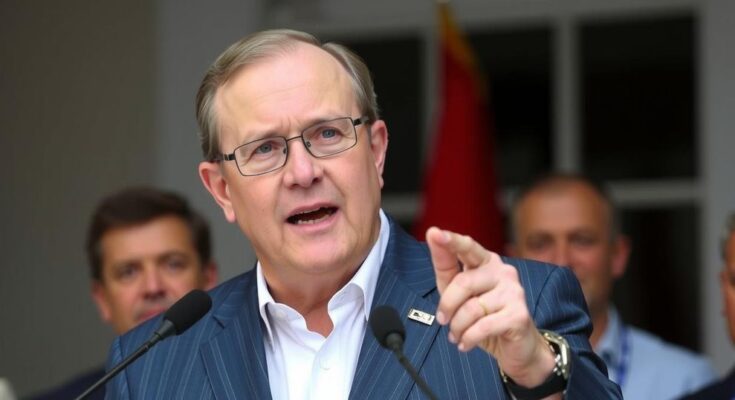Croatian voters will decide in a presidential runoff, where incumbent Zoran Milanovic is expected to defeat HDZ’s Dragan Primorac after securing over 49% in the first round. Milanovic’s candidacy reflects growing discontent with the ruling party amid a corruption scandal, with current projections indicating he may receive over 62% in the runoff election. The election unfolds against a backdrop of high inflation and corruption, raising significant questions of political balance in the country.
Croatia is poised for a significant presidential election outcome this Sunday, as incumbent President Zoran Milanovic is favored to secure a second term against Dragan Primorac of the ruling HDZ party. Milanovic, who received over 49% of the vote in the initial round, is projected to garner approximately 62% in the runoff, which could signify further challenges for the HDZ amid ongoing scandals. The election occurs amid rising inflation, corruption, and a labor crisis in the country, emphasizing the role of the presidency in maintaining political balance despite its limited powers. As Milanovic continues to criticize the HDZ’s governance, he has attracted support through populist rhetoric, positioning himself as a counterbalance to Prime Minister Andrej Plenkovic’s administration. In contrast, Primorac, a relatively new political face, aims to unify but has struggled to resonate with voters amidst attacks on Milanovic’s character and political stance. Current voter sentiment reflects concerns about the HDZ’s dominance, as citizens express intentions to vote against the ruling party, suggesting a potential shift in Croatia’s political landscape.
The upcoming runoff election for Croatia’s presidency is set against a backdrop of increasing dissatisfaction with the ruling HDZ party, particularly following a corruption scandal in November. Since its independence in 1991, the HDZ has primarily dominated Croatian politics. The current economic climate is aversive, marked by the highest inflation rate in the eurozone, longstanding corruption, and a significant shortage of labor. This context has galvanized support for President Milanovic, who has positioned himself as an outspoken critic of the HDZ and its governance. His campaign strategy focuses on leveraging populist sentiments while criticizing the ruling party’s alleged authoritarianism.
The presidential runoff in Croatia represents a pivotal moment that could reshape the political landscape of the nation. With Zoran Milanovic leading in popularity and projected votes, the election signifies a potential repudiation of the ruling HDZ party following various scandals. Regardless of the outcome, voter concerns about governance, inflation, and political balance are paramount, reflecting a critical engagement with Croatia’s democratic processes. Such dynamics not only influence immediate electoral outcomes but also set the stage for future political discourse in the country.
Original Source: www.barrons.com




